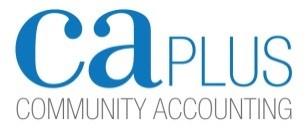Across the country, charities are facing ongoing financial pressures due to the impact of COVID-19. With cash flow drying up but demand for services increasing, what can charities do to keep their finances afloat during the crisis?
John O’Brien, CEO of Community Accounting (CA) Plus has come up with four steps charities can take to improve their financial health.
With all the difficulties going on right now, it may seem a little odd to think about accounting. Sorting out the health and well-being of your people and your beneficiaries naturally takes priority. But unfortunately, despite all the goodwill, the volunteering, flexible working, and even the odd bit of financial help, if the money runs out, there is not much you can do.
Having free reserves helps of course. Many organisations will have reserves built up over time for precisely this kind of situation - a cushion to help you ride out the storm. Reserves can help with cash flow issues in the short term and possibly fill a gap for a while, but in the long term, things need to get back in balance.
For some, right now the situation has already become critical. If your income stream dries up because your activity ceases, then unless you can turn down your expenditure and bunker down for a while, it could be terminal. You may be OK in the short term, your grant funders may be kind and continue funding even though activity is less, but in six months time? And in the long term, we all remember what happened to grant funding after the 2008 banking crisis when there was no money left and we had the joy of austerity. No doubt about it, for charities and other small enterprises – unfortunately harder times are ahead.
However, don't despair, there are some small steps you can take to improve your charity's financial situation:
- Get your financial records up to date and in good order so that you have reliable information on which to base any decisions.
- Think about your cash flow, look at the inflows and the outflows. Take advantage of any national or local Government support including grants and the Job retention Scheme, as well as some of the newly available charitable funds. There are links on the CA Plus homepage and funding news updates on the NCVS website and in their regular e-bulletins.
- Hold off on any unnecessary spending if you can. Bear in mind that your suppliers are probably suffering too, so don’t just refuse to pay people, but maybe think twice before agreeing to any optional spending, like pay rises.
- Start to think about some 'what if' situations. Plan for different financial scenarios - could you fund what you do in another way? Could you deliver your services in a different way that might reduce costs or make you more efficient? Would you consider across the board salary reductions to avoid closure, at least for a while?
My own Trustees and the CA Plus staff team are implementing these steps now to bolster our financial situation. Our budget tools (free to download from the CA Plus website) also allow us to consider all sorts of possibilities and the impact of each financial option.
Webinar Training
We recently delivered a series of short 30 minute webinars, in partnership with Lloyds Bank Foundation, for charities and voluntary/community groups covering all aspects of financial management. These are free for you to view at your convenience, just click on the links below to access them. You will need to register your details in order to view the recordings.
- Trustee responsibilities, specifically with regards to finance
This webinar provides an introduction to financial responsibilities for trustees and information on financial control and financial reporting.
- Understanding accounts
This webinar explores how year-end accounts are put together and how to read them, cash-based accounts including receipts and payments, accruals and information on balance sheets.
- Keeping the books and records
This webinar explores what records to keep, how to design your book-keeping system, how to spot and correct financial errors, going from cash based to accrual systems.
- Accounting for your project
This webinar looks at the principles of fund accounting (restricted endowment, designated, unrestricted). How to keep track of each fund, allocate overheads or core costs and report back to your funders.
- Budgeting, cash flows and planning
This webinar explores how to use budgeting tools and how to budget for activities, specific contracts and short term projects, as well as looking at cash flow forecasting.
- Financial reporting to your board
This webinar looks at who should report your finances to the board and when, what detail should be included and what format should be used.
